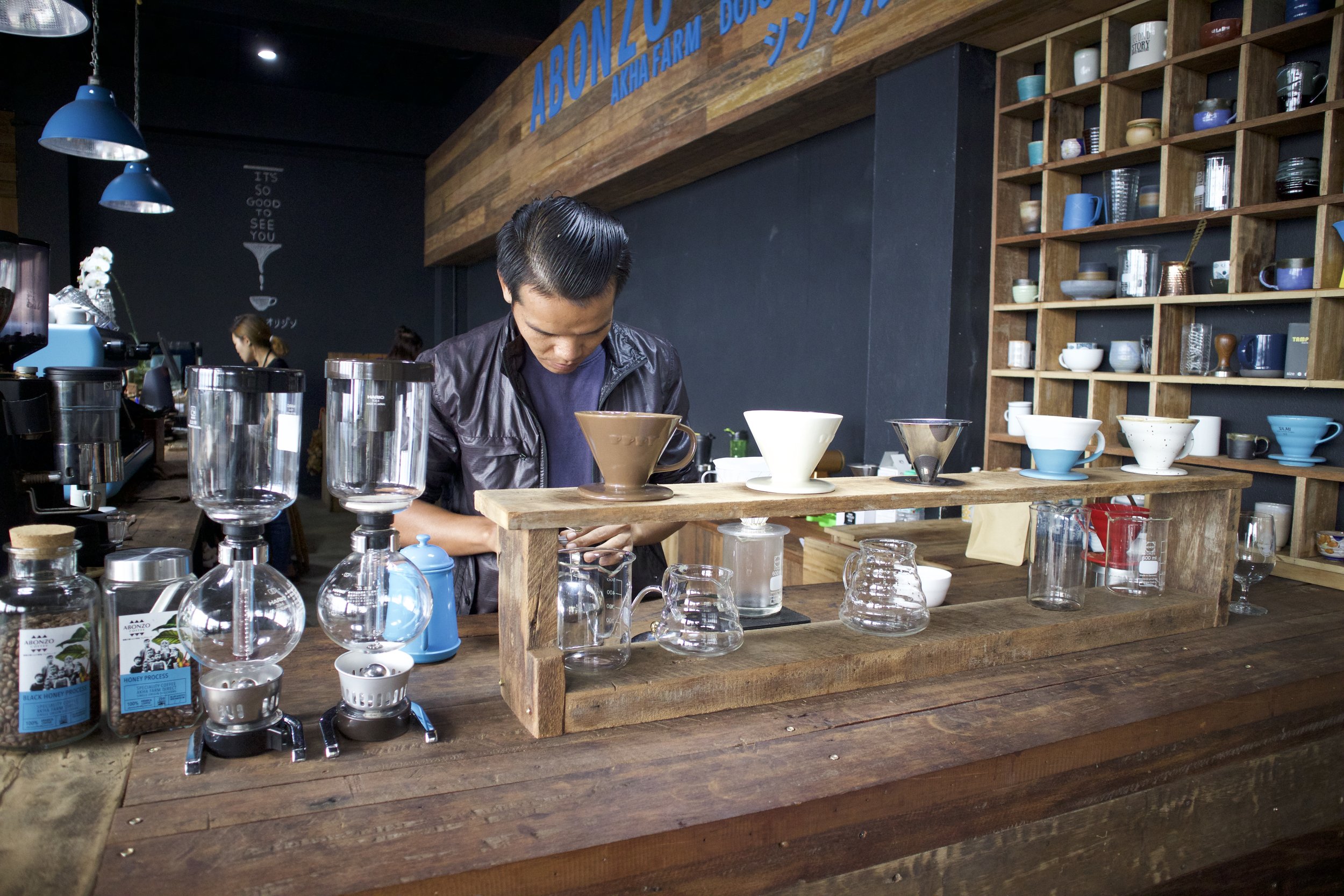Doi Chang, Thailand
Abonzo Coffee, run by Nawin Yaesorkoo and members of his Akha community, is a sight to behold. This cafe-roastery complex would be impressive in any context, but perched on the mountainside overlooking the valleys and ranges beyond, it made for a dream location that I had a hard time leaving. From the Abonzo Facebook About us page: “ABONZO Coffee was founded in 2012 by the 3rd generation of the man who first started growing coffee instead of opium in Doi Chang village over 30 years ago. Our aim is to deliver the best Arabica coffee beans to everyone and to support local farmers. We will not stop until the farmers have better life quality and all children have enough financial support to go to school. We want to see the better world.”
Dung and I check out the goods
Our host, Mr Nawin Yaesorkoo, made sure we were properly caffeinated before our trip up the mountain.
Just a moment in the cafe with a couple of coffees, some beautiful scenery, and meeting new friends.
Doggo could hear me make my cheesecake order, I know it.
The space is ideal for coffee origin tourists and buyers who need a cafe break as they visit suppliers and service providers. It’s easy to just hang out near a window (or outside!) and just pass a couple of hours looking at mountains and valleys.
Abonzo is a great model for more business-oriented producers to vertically integrate and capture more value - both in terms of revenue and marketing potential. Having a cafe at origin isn’t a new concept, but to have one so well-planned, executed, and managed is a rarity.
After a few coffees in the cafe, we took a trip into the mountain into a cloud forest full of variety.
Dramatic scenery, beautiful weather. We visited a well managed example of responsible agroforestry.
It felt like traipsing through the forest, and the coffee trees looked very happy about their situation.
Lush high-altitude coffee forest.
There is so much variety in the coffee plants, none of us could do more than guess at what we were looking at. After some time here, we headed down to Nawin’s cooperative wet mill, which was in the process of being expanded.
This visit was another example of the exciting and advanced Thai coffee growing community, a glimpse into a possible future for other origins as we all seek out ways for producers to capture more of their coffee’s ultimate value. For those who worry that these types of operations will eat up “all the good coffee,” leaving the less-good stuff for foreign buyers - it’s simply not true. These roasteries and cafes couldn’t possibly use enough coffee to make it unavailable for the rest of the world. I see it as a way to increase the amount of good coffee available, because once producers find pride in their product (usually much faster if they can actually experience the same thing that end consumers in the Global North would with their coffees), they naturally want to seek ways to expand the amount of good coffee they produce. And that’s good for everyone .







